Concussion Injury From a Car Accident in Ontario, Canada
Settlements for Concussion Injuries From a Car Accident in Ontario, Canada
Concussion injuries caused by car accidents are a serious issue in Ontario, and people must understand the risks involved. A concussion injury can have long-lasting effects on an individual’s cognitive abilities and physical health, which is why it is essential to be aware of the symptoms associated with such an injury.
In this webpage, we will discuss what a concussion injury is, its symptoms after a car accident in Ontario, treatment for concussions after a car accident, pain and suffering for concussions caused by car accidents as well as the average settlement amount for whiplash and concussions from a car accident. Furthermore, we will provide insight into how to recognize if one has suffered from a concussion after a car accident so that victim can seek appropriate medical attention or legal advice if necessary.
- Concussion Injury from a Car Accident in Ontario?
- Concussion Symptoms After a Car Accident Injury in Ontario?
- Understanding Compensation: Average Settlement For Whiplash And Concussion in Ontario?
- Treatment for Concussion After a Car Accident in Ontario?
- Average Settlement for Whiplash and Concussion in Ontario?
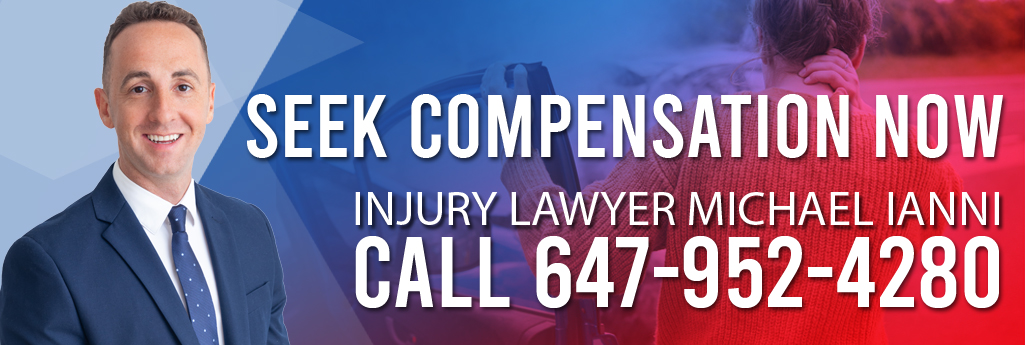
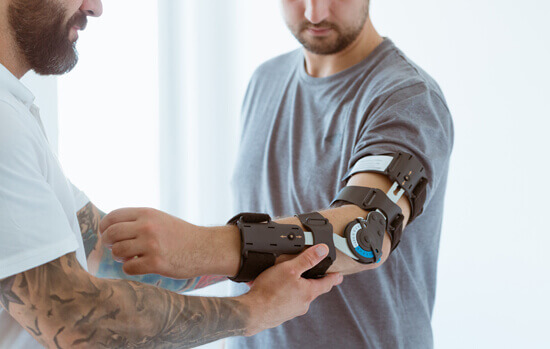
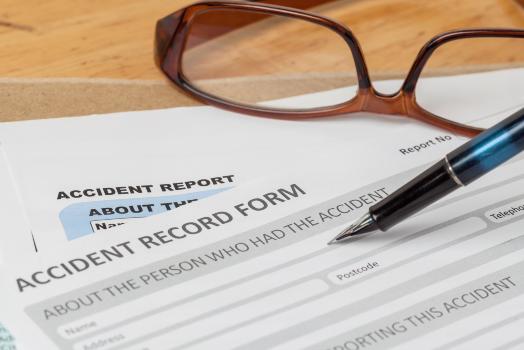
Concussion Injury Car Accident in Ontario, Canada
Concussion Injury from a Car Accident in Ontario, Canada
A car accident can result in various types of damage, and one significant form of harm that often goes unnoticed is a concussion. Car accidents are a common cause of concussions in Ontario.
The force generated during a car accident can cause the head to hit the steering wheel, dashboard, windows, or other objects within the vehicle, leading to a concussion. Even if the head does not strike anything directly, the sudden jerking motion of the head and neck can still cause the brain to move forcefully within the skull, resulting in a concussion.
In Ontario, Canada, where road accidents are unfortunately prevalent, it is essential to understand the consequences of concussion injuries and the legal options available to seek compensation for the victims.
While concussions are often considered mild, they should never be taken lightly. Even seemingly minor trauma can have various short-term and long-term effects on an individual’s physical, cognitive, and emotional well-being.
Understanding these effects is crucial for proper diagnosis, treatment, and support for individuals who have experienced a concussion.
Short-Term Effects of Concussion
- Physical Symptoms: Concussions can result in physical symptoms such as headaches, dizziness, nausea, vomiting, blurred vision, sensitivity to light and noise, balance problems, and fatigue. These symptoms can affect a person’s ability to carry out daily activities. They may require rest and limited physical exertion during the recovery period.
- Cognitive Difficulties: Concussion injuries can cause temporary cognitive impairments. Individuals may experience difficulties with concentration, memory loss, confusion, slowed thinking, and difficulty organizing thoughts. These mental challenges can affect academic or work performance and require adjustments and accommodations during recovery.
- Emotional and Behavioral Changes: Concussions can lead to emotional and behavioural changes, including irritability, mood swings, anxiety, depression, and increased sensitivity to stress. These emotional shifts can impact relationships and daily functioning, requiring support and understanding from friends, family, and healthcare professionals.
- Sleep Disturbances: Many individuals with concussions experience changes in their sleep patterns. This can manifest as difficulty falling asleep, disrupted sleep, excessive sleepiness, or changes in sleep duration. Sleep disturbances can further contribute to fatigue and problems in cognitive and emotional functioning.
Long-Term Effects of Concussion
While most people recover fully from a concussion within a few weeks or months, some individuals may experience long-term effects. It is important to note that the long-term consequences of concussions are still being researched, and individual experiences can vary.
Some potential long-term effects include:
- Post-Concussion Syndrome (PCS): PCS refers to a collection of symptoms that persist beyond the expected recovery period, typically lasting for several weeks or months. Rehabilitation programs and multidisciplinary approaches are often employed to manage PCS symptoms.
- Increased Risk of Future Concussions: Sustaining a concussion increases the risk of experiencing subsequent traumas. Each subsequent concussion can be more severe and result in prolonged recovery times. Individuals with a history of concussion must take appropriate precautions to minimize the risk of further injury.
- Cognitive Impairments: Some studies suggest that repeated or severe concussions may lead to long-term cognitive impairments, such as difficulties with attention, memory, information processing speed, and executive functions. These cognitive challenges may impact academic or occupational performance and require ongoing support and accommodations.
- Mental Health Issues: Concussions can contribute to the development or exacerbation of mental health conditions, including depression, anxiety disorders, and post-traumatic stress disorder (PTSD). A concussion’s emotional and psychological impact should not be overlooked, and individuals should seek appropriate support and treatment when needed.
Suppose you or someone you know is facing a concussion due to a car accident in Ontario. In that case, it’s best to discuss your case with our recommended lawyer to get you compensation if you are entitled to it.
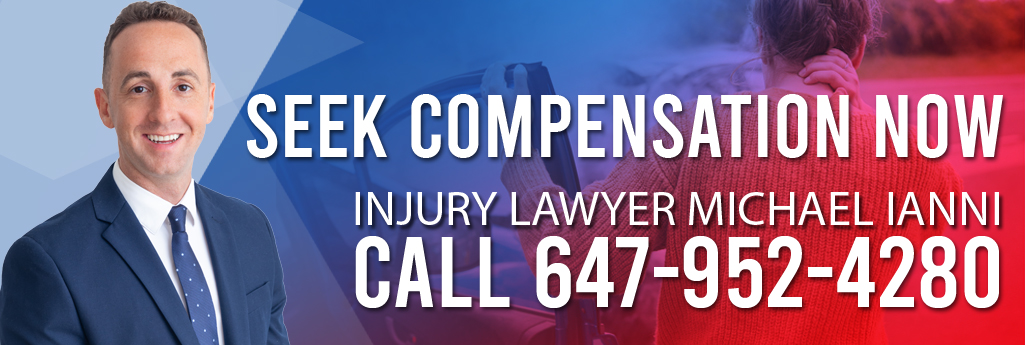

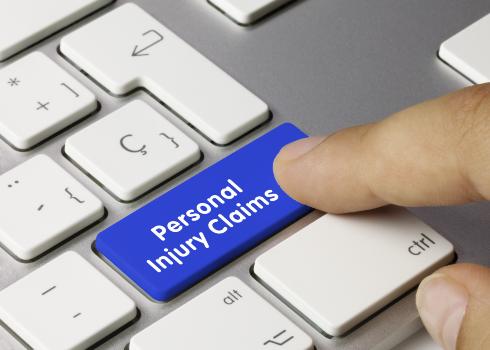
Concussion Injuries Car Accident in Ontario, Canada
Concussion Symptoms After a Car Accident Injury in Ontario, Canada
Experiencing a car accident can be a traumatic event, and one of the potential injuries that can occur is a concussion. Identifying whether you have a concussion after a car accident is crucial for seeking appropriate medical attention and ensuring your well-being.
While it is always advisable to consult with a healthcare professional for an accurate diagnosis, there are several signs and symptoms you can look out for to help determine if you may have sustained a concussion.
Concussion symptoms can vary from person to person. They may manifest immediately after the car accident or take hours or even days to appear.
Some common symptoms to be aware of include:
- Headaches: Persistent or worsening headaches, often accompanied by pressure or aching sensations, can indicate a concussion.
- Dizziness and Balance Issues: Feeling unsteady or having difficulty maintaining balance, along with sensations of spinning or lightheadedness, can be symptoms of a concussion.
- Nausea and Vomiting: Experiencing persistent nausea, sometimes accompanied by vomiting, can signify a concussion.
- Sensitivity to Light and Noise: Increased sensitivity to light (photophobia) or noise (phonophobia) can occur following a concussion.
- Blurred Vision: Vision disturbances, such as blurred or double vision, can be present after a concussion.
Cognitive Difficulties: Concussions can lead to cognitive impairments, including difficulties with concentration, memory loss, confusion, slowed thinking, and difficulty organizing thoughts. - Mood and Emotional Changes: Individuals with concussions may experience mood swings, irritability, anxiety, depression, or increased sensitivity to stress.
- Sleep Disturbances: Changes in sleep patterns, disrupted sleep, excessive sleepiness, or changes in sleep duration can occur after a concussion.
- Fatigue: Feeling unusually tired, exhausted, or lacking energy may indicate a concussion.
Loss of Consciousness: While the loss of consciousness does not always occur with a concussion if you briefly lose consciousness or experience a blackout, it is important to seek medical attention. - Memory Problems: Difficulty remembering the events leading up to or immediately following the accident, as well as gaps in memory, can be signs of a concussion.
Recognizing the signs of a possible concussion after an accident in Ontario is vital for ensuring your well-being and receiving appropriate medical care. If you experience any of the signs mentioned, seek immediate medical attention. Take your symptoms seriously, and follow the advice and treatment recommendations of healthcare professionals.
Understanding your legal rights and consulting with a personal injury lawyer can also ensure that you receive the necessary support and access to available benefits to aid your recovery process.
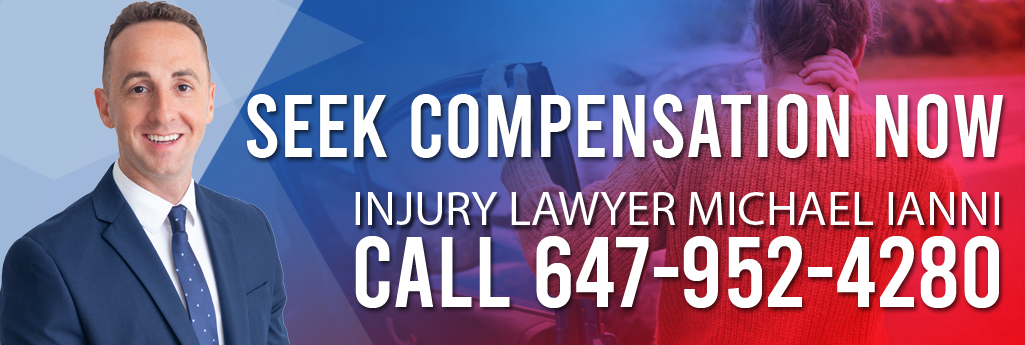

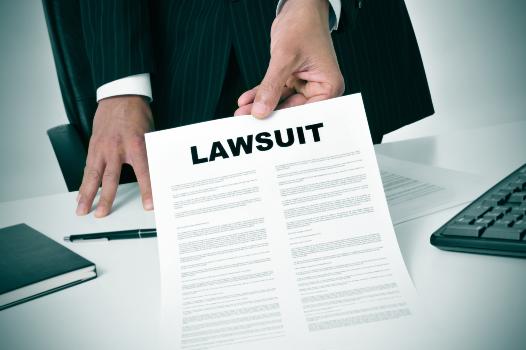
Average Settlement for Whiplash and Concussion in Ontario, Canada
Understanding Compensation: Average Settlement For Whiplash And Concussion in Ontario, Canada
Sure, here are some tips on how to avoid car accident pain and suffering from concussion:
- Drive safely. This includes obeying the speed limit, paying attention to the road, and avoiding distractions such as cell phones and other electronic devices.
- Wear a seatbelt. This is the most important thing you can do to protect yourself from injury in a car accident.
- Get a good night’s sleep. This will help to improve your reaction time and concentration, which can help you to avoid accidents.
- Avoid driving if you are tired, sick, or under the influence of drugs or alcohol. These factors can impair your judgment and reaction time, making you more likely to get into an accident.
- Be aware of your surroundings. This includes paying attention to other drivers, pedestrians, and cyclists.
- Be prepared to react quickly. If you see a potential accident, be ready to take evasive action.
By following these tips, you can help to avoid car accident pain and suffering from concussion.
In addition to these tips, there are a few things you can do to protect yourself from a concussion if you are in a car accident.
These include:
- Keep your head still. Try to keep your head from moving as much as possible after the accident. This will help to reduce the risk of further injury to your brain.
- Seek medical attention immediately. Even if you don’t think you have a concussion, it is important to see a doctor to get checked out. Concussions can sometimes be difficult to diagnose, and early treatment is important for a full recovery.
If you have suffered a concussion in a car accident, it is important to follow your doctor’s instructions carefully. This may include getting plenty of rest, avoiding strenuous activity, and taking medication to manage your symptoms. It is also important to be patient and give yourself time to heal. Concussions can take weeks or even months to fully recover from.
With proper care, most people who suffer a concussion make a full recovery. However, it is important to remember that every case is different. If you have any concerns about your recovery, be sure to talk to your doctor.
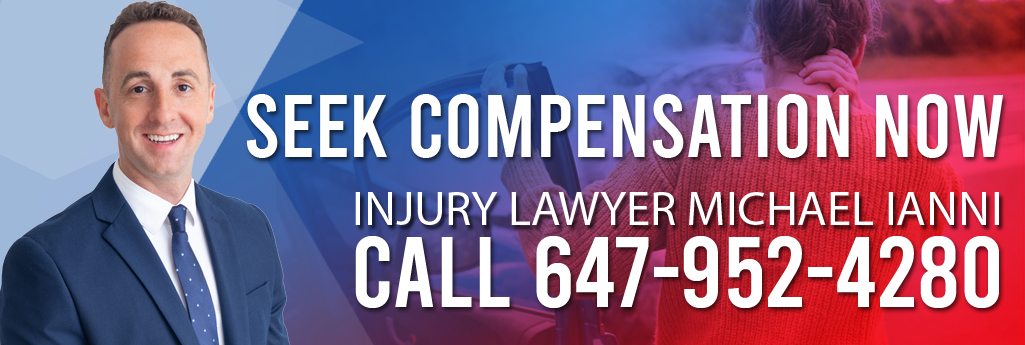


Whiplash and Concussion Settlement in Ontario, Canada
Treatment for Concussion After a Car Accident in Ontario, Canada
Sustaining a concussion in a car accident can be a distressing experience, but proper treatment is crucial for recovery. In Ontario, Canada, individuals who have suffered trauma in a car accident can access various treatment options to promote healing and regain their well-being. Understanding the available treatments and seeking appropriate care can aid in the recovery process.
Medical Assessment and Diagnosis
After a car accident, it is essential to seek immediate medical attention to assess the extent of your injuries, including the possibility of a concussion. A healthcare professional, such as a family physician or an emergency room doctor, will evaluate your symptoms, conduct neurological tests, and may order imaging scans like CT or MRI to make an accurate diagnosis.
Rest and Gradual Return to Activity
Resting both physically and mentally is a key component of concussion treatment. It allows the brain to heal and recover from the injury. Initially, a period of cognitive and physical rest may be recommended, which involves limiting activities that exacerbate symptoms, such as avoiding screens, strenuous physical exertion, and mentally demanding tasks.
As symptoms improve, a gradual return to normal activities under the guidance of a healthcare professional may be initiated. This process involves gradually reintroducing physical exercise, work or school responsibilities, and cognitive tasks stepwise to avoid symptom exacerbation.
Medication Management
In some cases, healthcare professionals may prescribe medications to manage specific symptoms associated with a concussion. For example, pain relievers may be recommended to alleviate headache or neck pain. However, it is important to consult with a healthcare professional before taking any medications to ensure they are safe and appropriate for your situation.
Symptom Management and Rehabilitation
Concussion symptoms can be managed through various rehabilitation techniques. These may include:
- Physical Therapy: Physical therapy can help address any physical impairments resulting from the concussion. It may involve exercises and techniques to improve balance, coordination, and strength.
- Vestibular Rehabilitation: If dizziness or balance problems persist, vestibular rehabilitation may be recommended. This therapy focuses on exercises and maneuvers to improve vestibular function and reduce symptoms.
- Vision Therapy: Vision disturbances following a concussion can be addressed through vision therapy. This specialized therapy involves exercises and activities to improve eye coordination, focus, and visual processing.
- Cognitive Rehabilitation: Individuals experiencing cognitive difficulties after a concussion may benefit from cognitive rehabilitation. This type of therapy aims to improve cognitive function, including memory, attention, and problem-solving skills.
- Psychological Support: Dealing with a concussion’s emotional and psychological impact is important. Seeking psychological support, such as counselling or therapy, can help manage stress, anxiety, and depression that may arise during the recovery process.
Collaboration with Healthcare Professionals
Throughout the treatment process, maintaining regular communication with healthcare professionals is crucial. They can monitor your progress, adjust treatment plans as needed, and provide guidance on managing symptoms. Following their recommendations and attending scheduled appointments can optimize your recovery.
Seeking appropriate treatment for a concussion after a car accident in Ontario is essential for promoting recovery and well-being. Resting, gradually returning to activity, and collaborating with healthcare professionals are key components of concussion treatment.
In Ontario, individuals who sustain a concussion in a car accident may be eligible for accident benefits under the province’s no-fault automobile insurance system. These benefits can cover medical expenses, rehabilitation costs, and income replacement during the recovery period.
Consulting with a personal injury lawyer knowledgeable about car accident cases can provide guidance on accessing available benefits and understanding your rights.
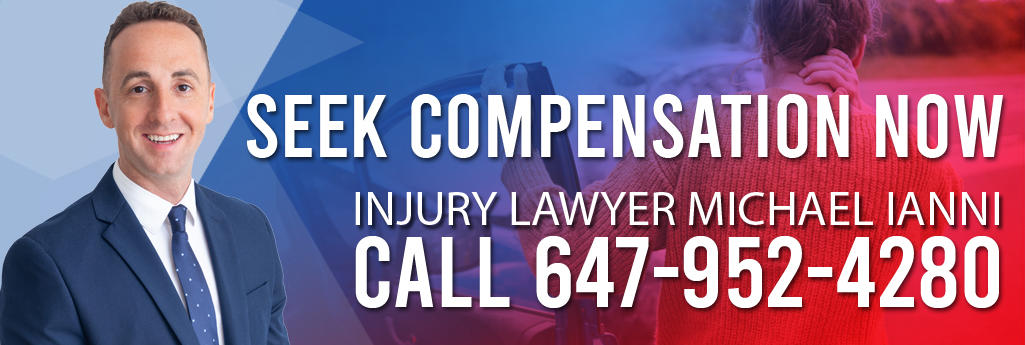
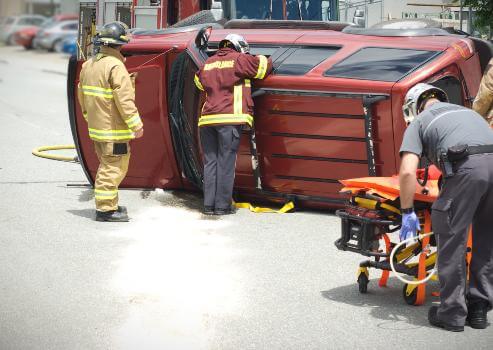

Car Accident Pain and Suffering from a Concussion in Ontario, Canada
Average Settlement for Whiplash and Concussion in Ontario, Canada
Whiplash and concussion are common injuries resulting from car accidents in Ontario, Canada. Suppose you have sustained these injuries and are considering seeking a settlement. In that case, it is important to understand that there is no fixed average settlement amount.
The average settlement for whiplash and concussion in Ontario varies depending on the severity of the injuries, the impact on the victim’s life, and other factors. In general, mild whiplash injuries can result in $5,000 to $10,000 settlements. In contrast, moderate to severe whiplash injuries can result in settlements of $20,000 to $50,000.
Concussions can result in settlements of $10,000 to $200,000, depending on the severity of the injury and the victim’s recovery.
Here are some factors that can affect the settlement amount for whiplash and concussion in Ontario:
- The nature and severity of your whiplash and concussion injuries significantly impact the settlement amount. A concussion is a traumatic brain injury, and whiplash is a soft injury.
- Comprehensive medical documentation. This includes medical records, diagnostic test results, treatment plans, and expert opinions from healthcare professionals, such as doctors, neurologists, and specialists.
- Impact of whiplash and concussion on your life, like the ability to work, perform household tasks, participate in recreational activities, and maintain relationships.
- Pain and suffering are other factors considered when determining the settlement for whiplash and concussion. It refers to the physical and emotional distress experienced as a result of the injuries.
- When calculating compensation, lost wages, diminished earning capacity, and potential future financial losses are considered.
- Previous court decisions and settlements in similar cases may provide a benchmark for assessing the value of your claim.
- Having experienced legal representation, such as a personal injury lawyer specializing in car accident cases, can significantly impact the outcome of settlement negotiations.
Determining the average settlement for whiplash and concussion in Ontario is challenging as it depends on the factors mentioned earlier specific to each case.
Consulting with a personal injury lawyer is crucial to assess the value of your claim and navigate the complex legal process to seek fair compensation based on your unique circumstances.
*The laws pertaining to automotive injuries are complex and are contsantly evolving. The information on this website was not written by legal professionals and should not be considered legal advise. Please contact a professional personal injury lawyer serving Ontario for the most up to date and accurate information.






